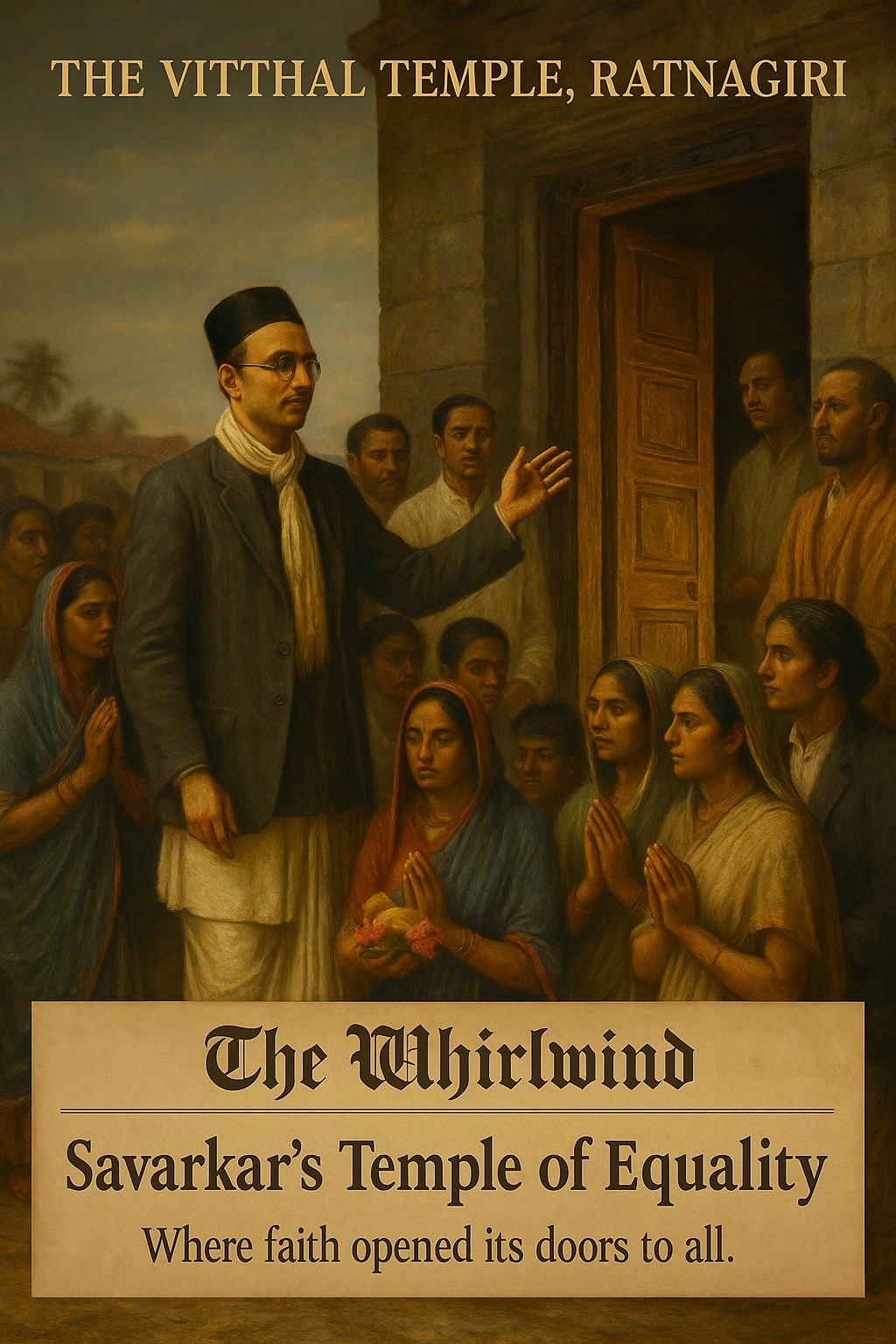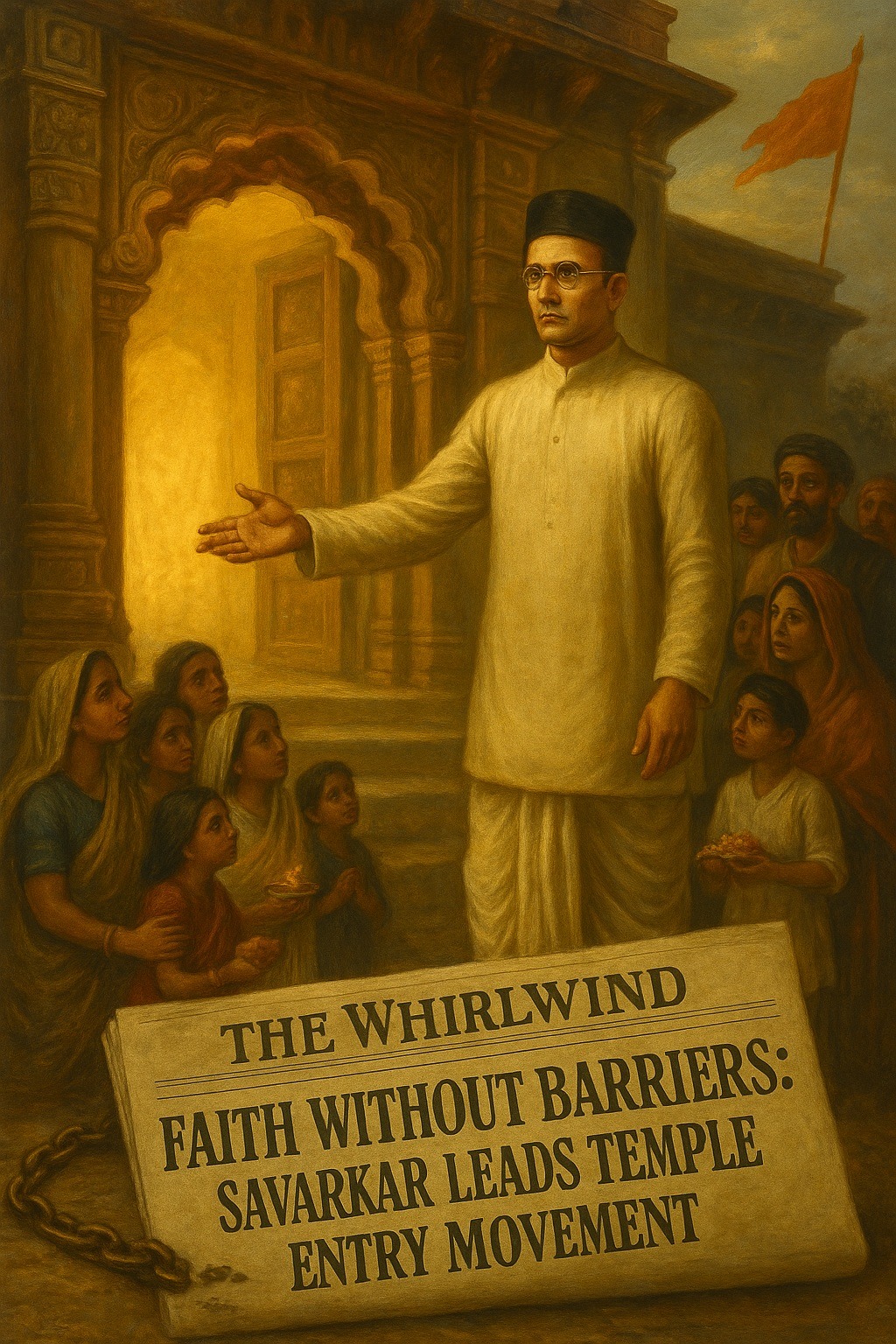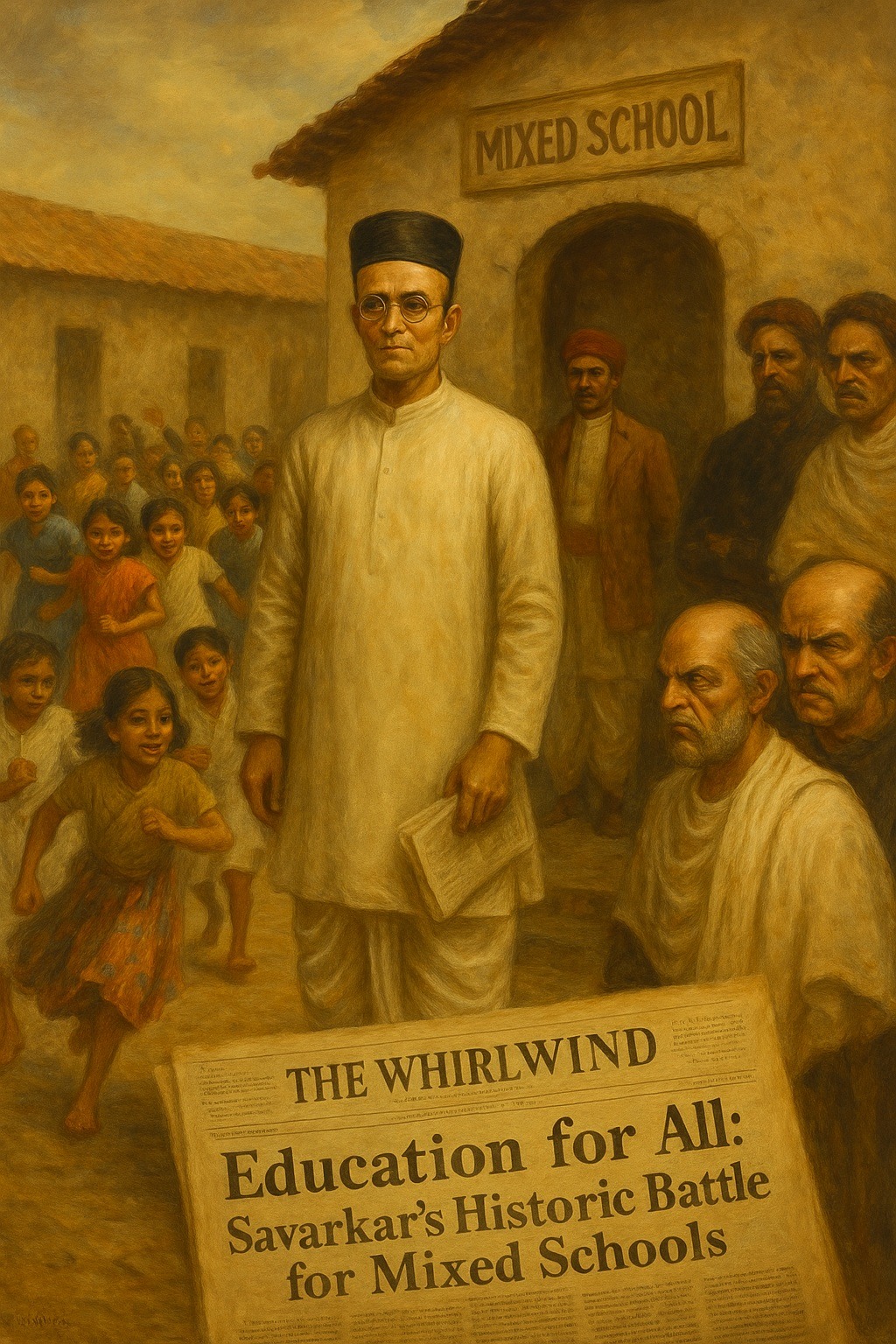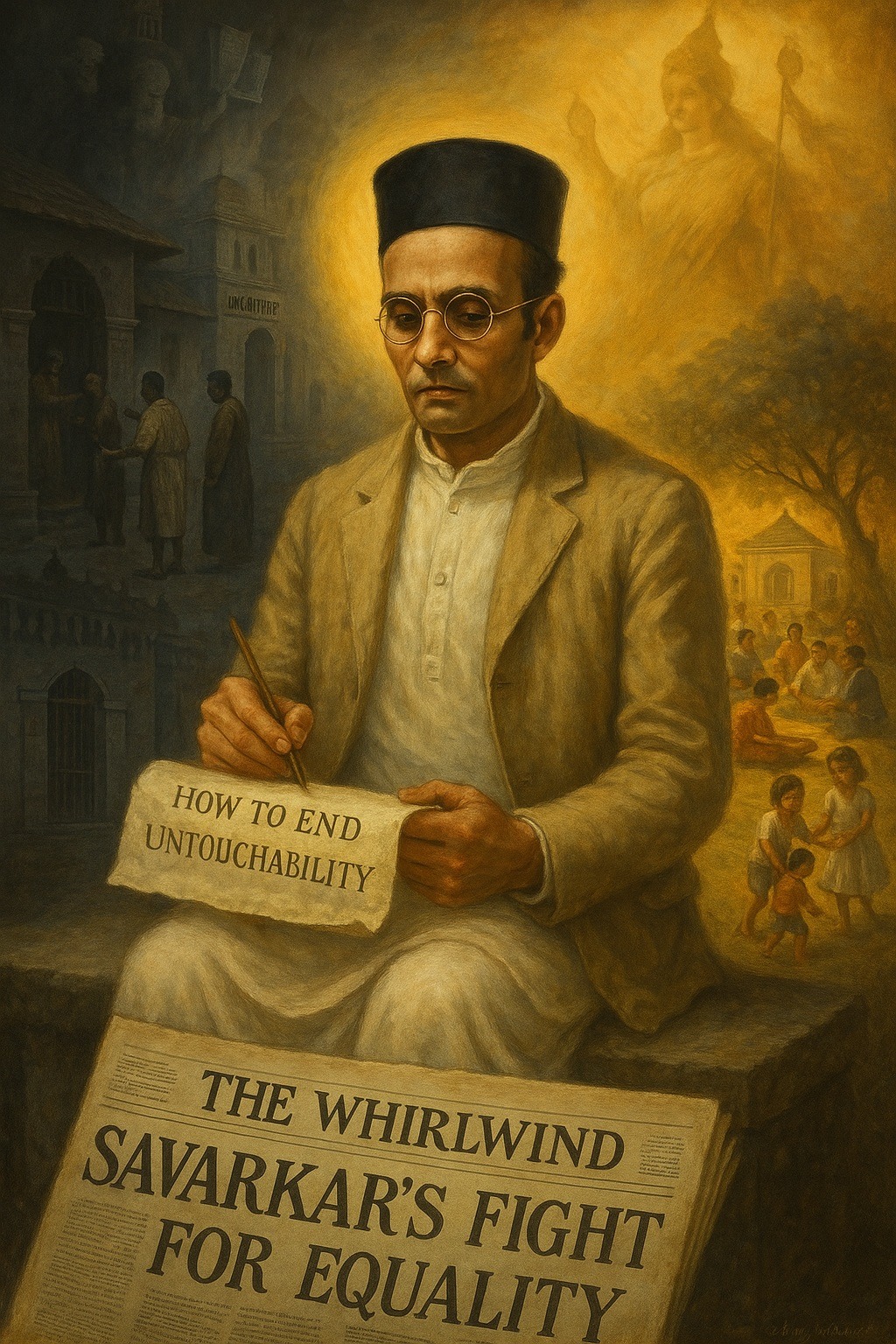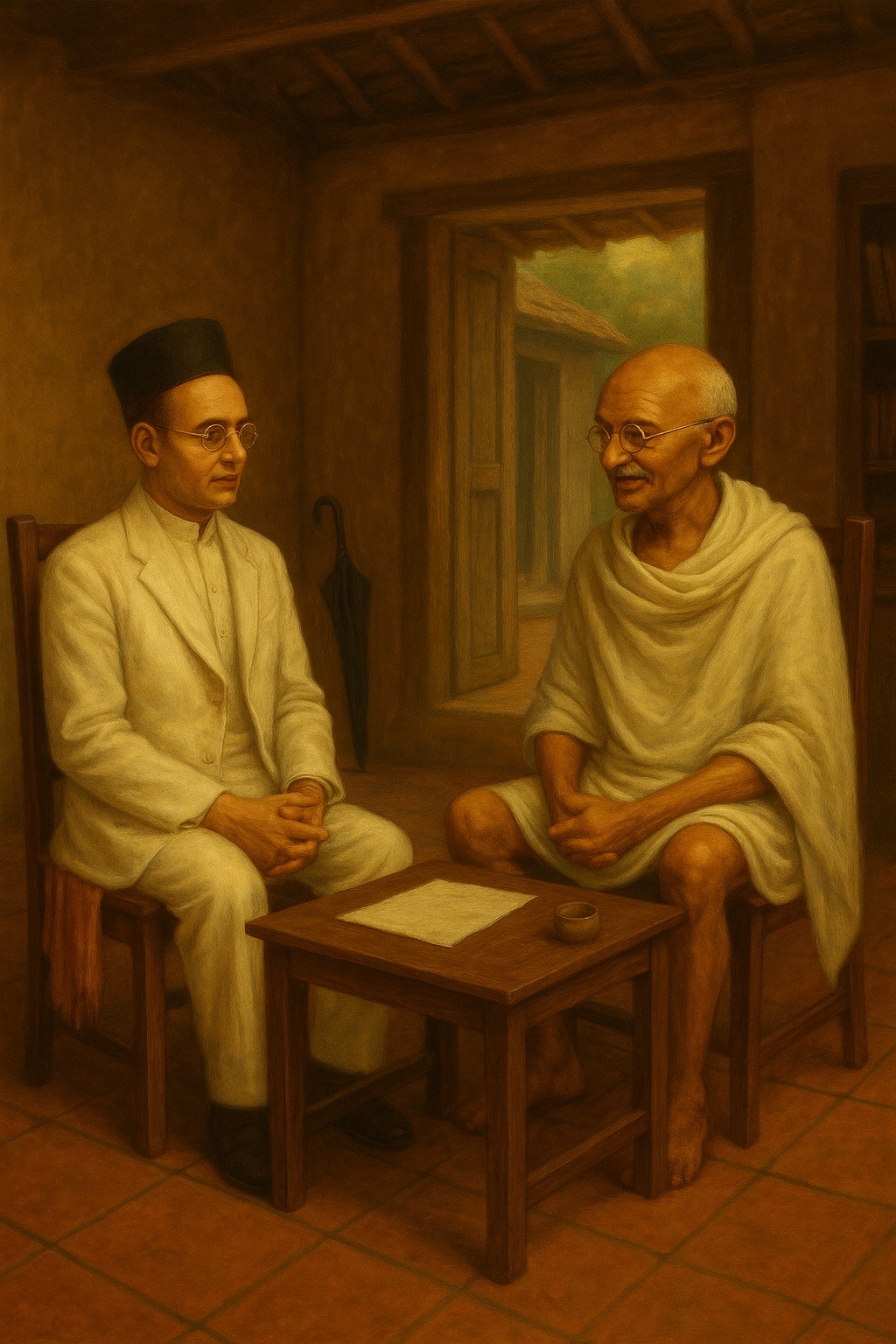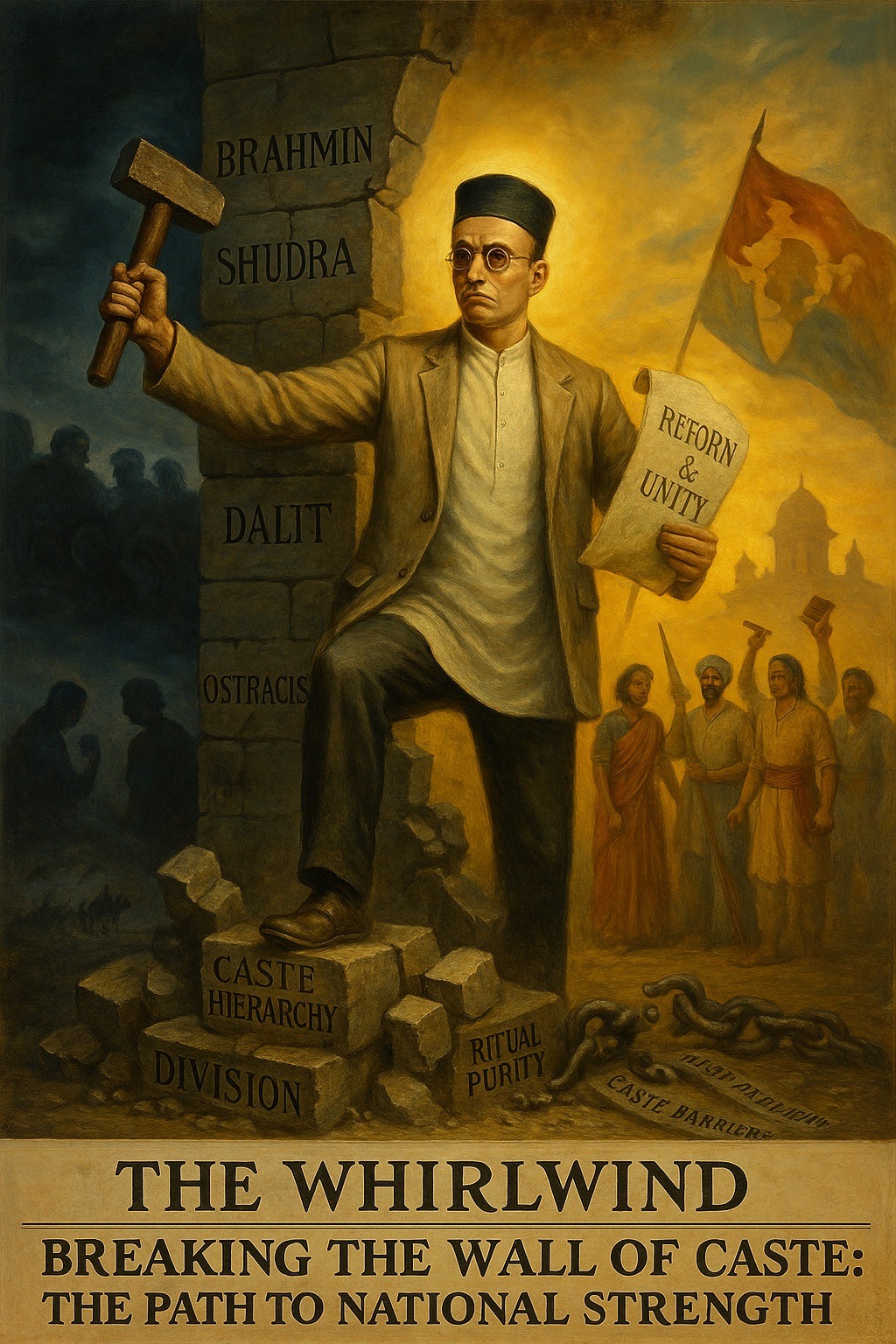Tag: AntiDiscrimination
-
In the deeply stratified caste-based society of India, untouchability was more than a social stigma—it was a form of systemic exclusion that dictated every interaction between communities. One of the most visible and personal manifestations of this discrimination was the denial of access to private homes. For centuries, Untouchables were not allowed to step into…
-
The fight against untouchability has been a cornerstone of India’s social and political reform movements, and one of the most significant contributors to this cause was Vinayak Damodar (Veer) Savarkar. Among the most symbolic actions taken by him in this struggle was the public burning of the Manusmriti, an event that not only captured public…
-
One of Vinayak Damodar (Veer) Savarkar’s most significant contributions to social reform in India was his active fight against the deeply ingrained practice of untouchability. Besides Savarkar’s Vitthal Temple Entry Movement, another remarkable milestone in this campaign was the founding of the Patit-Pawana-Mandir (Temple of the Redeemed) in Ratnagiri, a powerful symbol of inclusion and…
-
Savarkar’s Philosophy & Worldview, Part 14 The Relationship Between Nation and Religion: Understanding Savarkar’s Perspective on Religious Conversions Religion and nationality have long been intertwined in the fabric of human societies, shaping identities, cultures, and political landscapes. Few thinkers have explored this relationship as provocatively as Vinayak Damodar (Veer) Savarkar who presented a unique perspective…
-
The Vitthal Temple in Ratnagiri, located in Maharashtra’s Konkan region, became one of the most symbolically charged sites in early 20th-century Hindu social reform. Dedicated to Lord Vitthal (‘Vithoba’) – a form of Vishnu-Krishna revered as the deity of the common people – the temple held both religious and social significance for the local Hindu…
-
Savarkar’s Struggle Against Untouchability, Part III In pre-colonial India, the caste system established a deeply entrenched hierarchy that confined individuals to rigid social categories. Among its harshest expressions was the exclusion of the so-called Untouchables from Hindu temples. The larger and wealthier the temple, the more uncompromising the restrictions. For centuries, such practices persisted unchallenged,…
-
Savarkar’s Struggle Against Untouchability, Part II Among the many aspects of Vinayak Damodar (Veer) Savarkar’s reformist thought, his campaign against untouchability stands out as a crucial yet often neglected chapter. During his confinement in Ratnagiri, Savarkar directed his intellectual and organisational energy toward addressing what he regarded as one of the gravest internal weaknesses of…
-
Savarkar’s Struggle Against Untouchability, Part I Vinayak Damodar (Veer) Savarkar is often celebrated as one of India’s most fearless revolutionaries and intellectual architects of national liberation. Yet, beyond his political vision and militant struggle for independence, there lies another profound dimension of his legacy – his fight against untouchability. During his years of confinement in…
-
The meeting between M.K. (Mahatma) Gandhi and Vinayak Damodar (Veer) Savarkar in Ratnagiri in 1927 was one of those rare encounters in Indian history where two towering, yet ideologically opposed, figures came face to face. Though often overlooked, this event offers a unique window into the clash of philosophies that would shape the future of…
-
The caste system has long been a defining yet contentious element of Hindu society. Vinayak Damodar (Veer) Savarkar, a fierce nationalist and reformist, saw this system not just as a social hierarchy but as a significant barrier to Hindu unity and nation-building. His critique of caste-based social ostracism stemmed from his conviction that it weakened…





